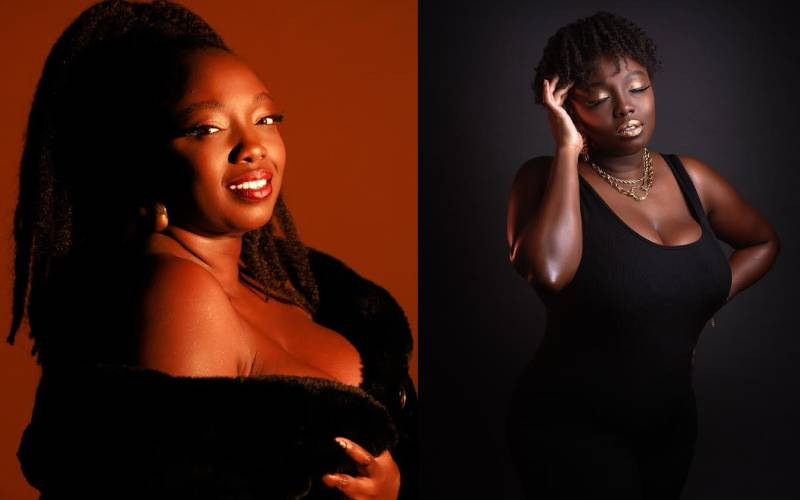
Lawyer Sam Nyaberi has found himself in the spotlight for his role as an advocate in a criminal case against journalist Jacqueline Maribe and her fiancé Joseph Irungu.
He talks to Gardy Chacha about his path towards his career through the corridors of law and justice.
How did you find yourself working in the Jowie-Maribe case?
The law firm I work for was under instructions to represent the accused.
Which one of the accused?
I am appearing for Jowie – together with other advocates. The firm was instructed by the client’s family to represent him.
Is this the most high-profile case you have handled?
I have had other high profile cases. Even as I was taking up this one, I did not think that the media would be so interested in it.
Is this the career you wanted to join?
I believe so.
What do you recall about growing up?
I was born and raised in Kisii. I went to the local primary and secondary school before proceeding for university education in India. My dad was a teacher and my mother a housewife. I have nine siblings and we went through the usual challenges synonymous with village life.
University in India: you couldn’t get admission at a Kenyan university?
I did not get admission into a regular programme and there weren’t parallel programmes back then. So, I had to look for other options.
Why India?
It’s a long story. I am the third person in my family to go to India for university education. In my village, several of us have schooled in India. My cousin was already in India when I cleared high school. Through him, I received an offer letter from an Indian university, got a visa and travelled with Sh50, 000 in my pocket.
You must have come from a rich family?
That is not true. And by the way university education in India was incredibly cheap.
How cheap?
From first year to fifth year studying law, I paid an equivalent of Sh100, 000 or less for tuition fees. Incredible, isn’t it?
How did you survive in India?
Our parents used to buy bankers checks and send them by post. I would then cash it upon receiving it.

Which university did you attend?
Dr Babasaheb Ambedkar Marathwada University, in Maharashtra State.
Was it easy getting admission?
Upon clearing high school I sent my cousin (who was already studying in India) my papers. He then scouted for the university that could give me admission. He got one and sent me admission documents which I worked on.
When did you come back?
I came back in 2000 and applied to Kenya School of Law. I was admitted to the bar in 2003 and I joined Ombeta & Associates advocates.
You say you are not from a rich family: how was all this possible?
My dad (before his demise) and his peers in the village had a regular ‘chama’. Together they decided that they would send their children, who were eligible, to India for university education. I recall they would pool their money together to send us there to study.
As an advocate, when you are representing your client, what do you want to achieve?
Justice
Even if it means that your client is guilty?
Justice – supported by evidence – has to be served. You see, a lawyer works under the instructions from the client. It is my duty to follow those instructions and work towards achieving the right outcome for the client.
What if I lie to you so that you can lie for me to the point of being acquitted even if I am guilty?
As your advocate, I cannot take those instructions as lies. It is within your knowledge that you are lying to me.
Have you always won cases?
I have won some, I have lost some. If I win, it is not that I lied to court. It means I just applied the instructions and the client came out unscathed.
If there is conviction then the evidence outweighed the instructions given to me by the client. If the client is guilty then mitigation – self and soul searching moment for the client – kicks in.
Would you take a case in which you suspect the prospective client to be guilty?
Everyone (whether guilty or not) has a right to be represented in court. That being said I have deliberately avoided cases where a client has been accused of rape or sexual violence.
Why?
Out of my own conviction.
Majority of Kenyans believe lawyers are just learned liars, are you one?
I am not. That is a perception. And it is a wrong perception. Listen, if you tell me ‘I am accused of this and I want you to help me get exonerated’, those are your instructions to me as your lawyer; they are not my instructions.
How old are you?
I am on fourth floor.
I am asking the actual number?
I am 43.
 The Standard Group Plc is a multi-media organization with investments in media
platforms spanning newspaper print
operations, television, radio broadcasting, digital and online services. The
Standard Group is recognized as a
leading multi-media house in Kenya with a key influence in matters of national
and international interest.
The Standard Group Plc is a multi-media organization with investments in media
platforms spanning newspaper print
operations, television, radio broadcasting, digital and online services. The
Standard Group is recognized as a
leading multi-media house in Kenya with a key influence in matters of national
and international interest.

